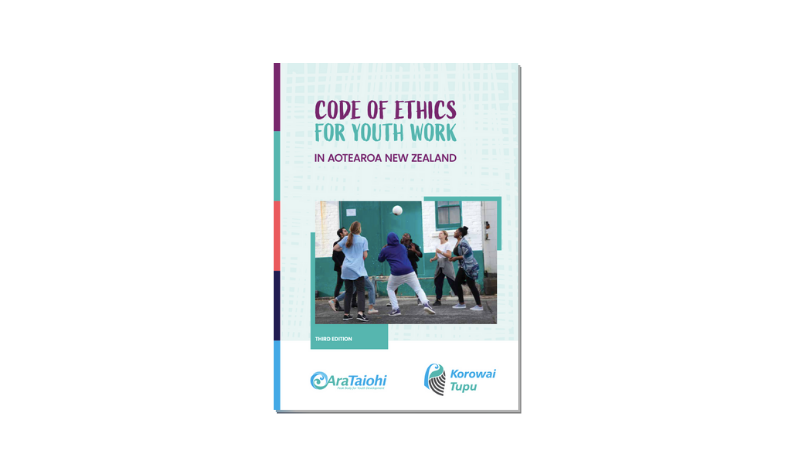THE CODE OF ETHICS
Manaakitanga | Insights
Please find a Scenario Insight and a perspective from the Disability Community to support further understanding of these clauses
Please find a Scenario Insight and a perspective from the Disability Community to support further understanding of these clauses
A youth worker is campaigning for political office. They actively campaign online and promote their political party at the youth organisation and youth events.
We need people who understand youth development in influential positions. Systemic challenges in Te Ao require political transformation. The key reflection for a youth worker considering campaigning is whether they are using (or abusing) their position for political gain (clause 19, especially 19.1 and 19.3). “It clouds every interaction if young people think you are trying to get something – it sours the relationship and takes away the genuineness.” – Young person, 17
Clause 14 (Kia Awatea | Transparency) is key. Discussing with your supervisor (clause 22), organisation/manager and young people what boundaries are needed (clause 16), especially during campaigning season, is vital for the youth worker’s integrity (clause 4) and the young person’s safety (clause 20).
When campaigning online, youth workers recognise that these clauses and considerations are equally as applicable (clause 11.2 Ā-Ipurangi | Youth Work Online).
Advice from a young person:
“Once actively online you need to ask yourself how much you are influencing young people without knowing it. You need to recognise the fact they could be looking.” – Young person, 23
Reflection: would your views change if the person:
How do the beliefs that you hold affect your opinion?
“These points are problematic as they are unseen factors in the room. You could break a relationship in an instant by something you say or push, and you wouldn’t even know.” – Young person, 23
Connection with friends, family, whānau and the greater outside world has never been more important or more easily accessed. COVID-19 increased online connection for young people with disabilities, with some negative consequences for some of our young people.
Some examples (shared with permission):
A 19-year-old female with cerebral palsy who is a wheel-chair user shared that she had been asked to share explicit photos online and engage in sexting. Initially she felt flattered and excited, but the photos were uploaded to an only-fans account (adult content) without her permission. She was then bombarded with messages on her Instagram from strangers which resulted in her becoming very distressed.
A 21-year-old male with a spinal cord injury is online gaming a lot. He got quite depressed as the online community is very toxic, and the bullying got way too much. He ended up bullying others online to fit in, which made him more depressed.
With these accounts and many more that included oversharing, bullying, dating and explicit content, and with nowhere to refer them to, our youth engagement group hatched a plan. Together we discussed what safety looks like and tailored to the specific issues facing the community. We spent a lot of time talking about how it could be best delivered and remembered. The young people developed a plan that focused on increasing connections and support, including a wellbeing check-in and a friend tree.
The resulting module, ‘resilience online’, has supported our community to stay connected but in a healthy, positive and safe way!
NextWhai Wāhitanga | Insight
Our behaviour is guided by our ethics and our ethics are based in our values.
The Code of Ethics provides an agreed set of guidelines for youth work in Aotearoa to ensure that youth work is carried out in a safe, skilled, ethical manner.